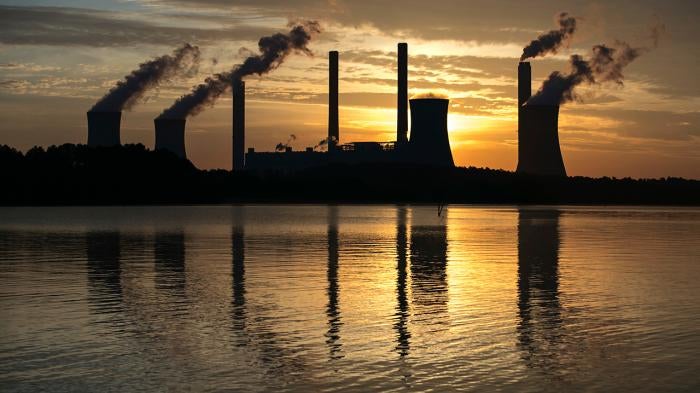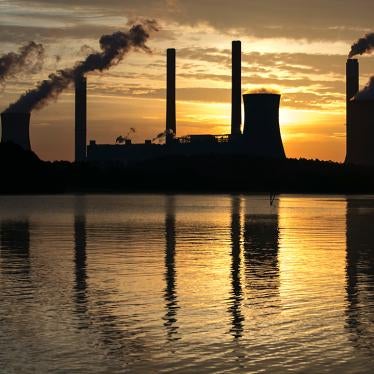(Berlin) – The expert group meeting in Bonn, Germany on March 7, 2023, should propose rigorous rules to ensure that the carbon market established under the Paris Agreement is strictly regulated to uphold rights, support climate action, and provide a remedy for any harm, Human Rights Watch said today. Human Rights Watch submitted recommendations to the expert group outlining standards to be followed by carbon offsetting projects during registration, monitoring, and renewal, as well as principles for an independent grievance and appeals mechanism.
In 2022, member countries of the Paris Agreement directed the group of experts, called the Article 6.4 Supervisory Body, to propose rules for the carbon market foreseen in the climate change treaty’s article 6.4. Members will vote on the rules proposed by the Supervisory Body, as well as revise and extend its mandate, during COP28, which is scheduled for November 30 to December 12 in Dubai, in the United Arab Emirates.
“Governments and private entities should emphasize producing verifiable cuts to their emissions rather than relying on frequently disastrous carbon offsetting projects,” said Luciana Téllez Chávez, environment researcher at Human Rights Watch. “Insofar as offsetting is allowed under the Paris Agreement, it needs to be tightly regulated.”
The market foreseen under article 6.4 of the Paris Agreement is intended to replace the Clean Development Mechanism (CDM) established under the Kyoto Protocol, which enabled governments and private entities to trade carbon credits to offset their greenhouse gas emissions. Climate scientists have heavily criticized the CDM for failing to ensure that the projects it accredited led to real reductions of emissions. Some were also linked to human rights abuses, including forced relocations and killings of environmental defenders. Other carbon offset projects in the unregulated carbon market have been found to be fraudulent and exploitative.
Nearly every country that is a party to the Paris Agreement is also a party to two core international human rights treaties, the International Covenant on Economic, Social and Cultural Rights, and the International Covenant on Civil and Political Rights. These treaties obligate governments to protect people from arbitrary arrest, discrimination, and forced displacement, among other fundamental rights. Given their broad adoption and application, many of these provisions are now considered customary international law. By adopting rules that reflect these human rights standards, the Supervisory Body would be aligning implementation of article 6.4 with countries’ existing human rights obligations, Human Rights Watch said.
The rules should require new projects to submit an environmental and social impact assessment, including an explicit evaluation of human rights risks, Human Rights Watch said. Assessments should be accompanied by a detailed plan to prevent potential negative environmental and social impacts that could be associated with the project’s design and implementation. An effective vetting process would require projects to demonstrate they do not carry negative environmental and social impacts, including human rights violations.
A draft version of the rules currently being considered would require projects to consult with rightsholders like local communities and Indigenous peoples only if required by domestic law. Human Rights Watch urged the Supervisory Body to adopt standard baseline requirements for consultation that align with international standards and best practice on Indigenous peoples’ right to Free, Prior, and Informed Consent (FPIC), and access to information and participation, including environmental information. These baseline standards should apply across all projects to be considered effective safeguards.
Human Rights Watch also urged the Supervisory Body to adopt rules that require creating environmental and social impact assessments and mitigation plans that are dynamic and responsive to changing circumstances. Their adequacy and effective implementation and monitoring should also be part of the criteria to determine whether a project can be amended or renewed.
Human Rights Watch also echoed the recommendations of the civil society organizations Carbon Market Watch (CMW) and the Center for International Environmental Law (CIEL) to create a substantial grievance and appeals procedure that is operational before the Supervisory Body can approve any project. Rightsholders who believe they have been harmed by a project’s approval or implementation should be able to appeal those decisions.
The grievance and appeals procedure should also be able to issue recommendations at any time, impose temporary measures such as suspending the implementation of a project, and issue redress measures that are binding on the institutions or businesses carrying out projects Human Rights Watch said.
“The expert group needs to establish clear rules so that whatever replaces the Clean Development Mechanism operates in a manner that upholds human rights, reverses environmental degradation, and doesn’t undermine efforts to phase out fossil fuels and reduce greenhouse gas emissions,” Téllez Chávez said.








